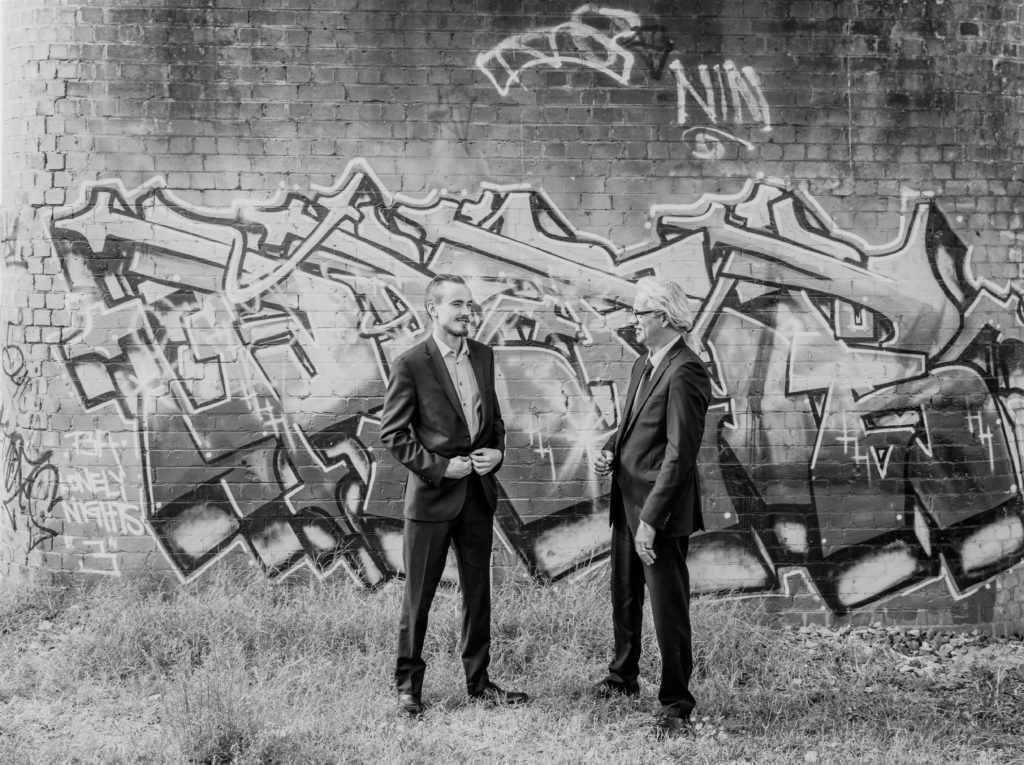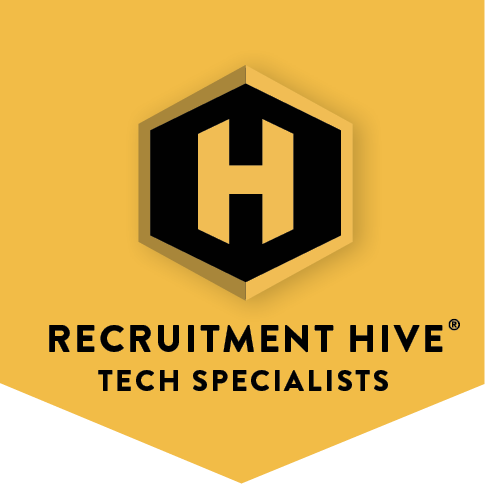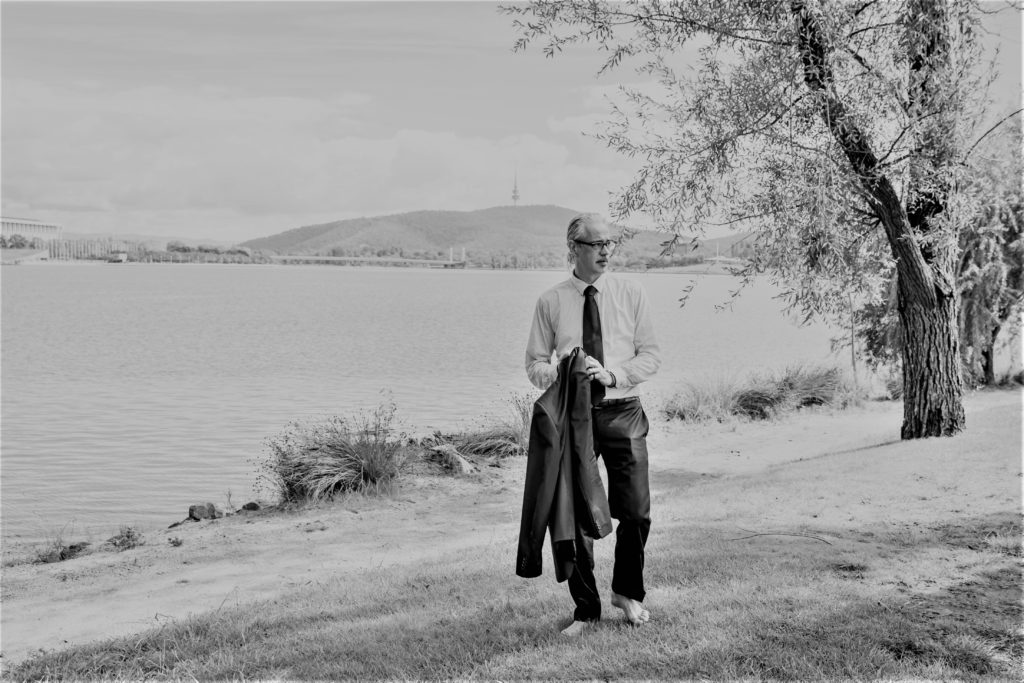If a wild, feral cat, used to constantly fighting for survival in nature, ever met my long-haired ginger rag-doll house cat only one possible outcome would result: my house cat, whom I love so much, would be torn to shreds and left in pieces for me to cry over. Same with a wolf against my cavoodle, no competition at all! Good-night cavoodle. 
Such comparisons have spawned a health and fitness phenomena known as Re-Wilding.
When I first heard of the re-wilding approach to health and fitness it instinctively resonated with thoughts I was having about Recruitment Hive’s business and the workplace culture that has naturally developed over the years.
In regards to health and fitness, re-wilding is about getting out into nature to exercise, eating fresh and unprocessed foods, slothing when tired and disconnecting from devices; some pretty basic things. I can’t imagine that these practices will turn a cavoodle owning corporate professional into a Tarzan-like figure that naturally attracts wild jaguars as companions, but I do get the point – and it interests me how the concept might be applied to the workplace.
Is there a need for re-wilding in the workplace though? I feel there is and have a great example as to why so.
Recently I participated in a product presentation to a Tier 1 technology team. One of Recruitment Hive’s contractors had developed a new paradigm tool and I was assisting him to set and conduct meetings with technology decision makers in the hope of establishing a test bed environment.
During one such meeting I had arranged for six very senior technologists and decision makers to be in a room to receive a demonstration of the new tool. There were SES and EL2 business executives and four technology professionals from the teams working under their leadership. Both the SES and EL2 decision makers where engaged and animated throughout our meeting, asking questions and raising objections freely. They seemed confident and comfortable in the manner in which they conducted themselves. However, not so those on lower rungs of their departmental hierarchy. None of the technology professionals made a single comment or asked a question throughout the meeting and all seemed disengaged and withdrawn. All appeared tamed; fairly described as de-wilded.
What factors de-wild our modern workplaces?
I wondered what type of work culture sucks the life-force from people in a modern and professional work environment to such an extent? The very life-force that long ago we used to depend on to survive in a hostile and dangerous world full of large animals trying to eat us.
Frederick Nietzsche believed that the primal purpose of the human-animal was to seek power. He called it the “will-to-power” and suggested that to be denied will-to-power leads to the loss of will that manifests in feelings of impotency, pessimism and resentment.
Nietzsche wrote that “will-to-power pumps life in the heart” and his work can be applied to the concept of re-wilding the workplace. He had two main concepts that I feel are relevant. First, Nihilism, which suggests that humans are an “experimental animal that are destined to live dangerously”. He argued, through Nihilism, that the we, as human-animals, will be chaotic and destructive in our innate drive to achieve will-to-power.
This explains why our work environments have be de-wilded. Our work places, just like our societies, require norms and values that serve in developing coherence and order. Our societies, Nietzsch argued, required these so as to distinguish us from the animals. However, over time, these norms and values begin to be institutionalised and hardened to the point that they become a disservice to us and actually create regimes that disempower us, or de-will us, to the point that we lose our touch with our innate humanity.
What can we do to re-wild?
This brings us to Nietzsche’s second point that relates to the re-wilding of the workplace.
As already described via Nihilism, humans started to institute norms, values, rules and laws to temper our chaotic and destructive search for will-to-power and make our societies safe and civilised. However, in doing so they over-restricted our ability to achieve will-to power and therefore lead to the negative outcomes of personal resentment and pessimism.
Nietzsche calls this the Apollonian and Dionysian dialectic. Within the human animal Apollo appeals to our rational thought and logic while Dionysus appeals to our emotions and instincts.
Perhaps what Nietzsche means is that on one hand exists chaos and on the other exists totalitarianism.
A balance between the two must be achieved if we are to have both a civilised society (and workplace), yet ensure the human-animal remains engaged, enthused and motivated.
Back to Recruitment Hive’s meeting we were discussing earlier. The two senior decision makers had will to power and this was obvious because they were animated, confident and engaging. The four human-animals lower in the hierarchy were denied will-to-power. Their impotence and pessimism, even resentment was thick in the room for all to sense. They had been tamed, de-wilded.
What’s the ideal wild/de-wild balance?
Of course, total chaos could never be successful within a workplace. A balance is required; we can’t go to work channeling our inner Ju-Ju Hound striving to become the Lizard king screaming “Mojo Rising” while rioting outside our boss’s office.
Could we also agree though that extensive processes, methodologies, guidelines, style-templates, dress-codes, protocols, inductions, rules, prescribed norms & values might actually resemble a state of work-place totalitarianism?
Do we (rarely/sometimes/often/always) feel pessimism, resentment and impotence in our work-places?
We need many processes within our workplaces, our businesses rely on them.
But perhaps we need to be mindful of not overburdening our workplaces with such things. Implement them when necessary, but when not absolutely required allow some human-animal freedom and intuition in the work-place.
To find ways to re-wild the workplace could well have a positive impact on our productivity and capability.
We need to be mindful of the affect that the established norms, values and rules are having on the human animals in our workplaces and where they are derived from. We need to ask if our workplaces are so stifling of the will-to-power that human-animals resent being within them. Is there too much pessimism in the office? Can we sense the resentment? If the answer is yes, then maybe a focus on encouraging instinctual behaviour is the answer, relax the rules a little.
Allow the team to discover, refine and establish its own norms rather than forcing a prescribed organisational culture on their workplace. A company, especially a big company or government department, may have a history, but its culture exists within its people, allow them to develop and evolve it themselves.
As Nietzsche proclaimed: “Live dangerously and love fate.”






